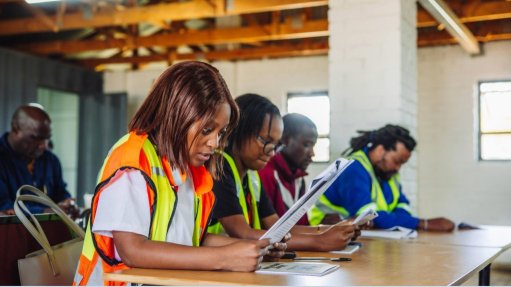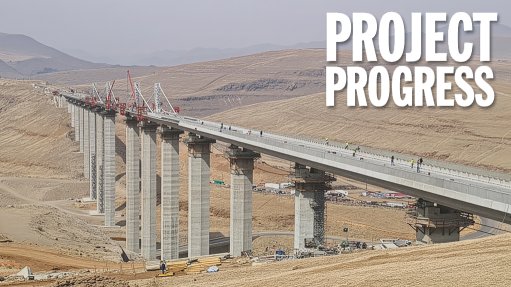Seifsa calls for extensive consultation on draft preferential procurement regulations
Industry body the Steel and Engineering Industries Federation of Southern Africa (Seifsa) has prepared a submission in response to the draft Preferential Procurement Regulations published by the National Treasury for public comment, owing to the fact that State organs are key markets to which the metals and engineering sector supplies products.
Seifsa points out that, in 2020, State organs’ procurement amounted to R70.9-billion, or 22.9% of total domestic sales from the sector. Notably, State procurement in the electrical machinery subsector accounts for more than half (52%) of domestic sales.
Seifsa says the draft regulations run counter to the industrialisation aspirations of the country and have the potential to reverse the historic efforts that have been invested into developing industry master plans and designation efforts.
Moreover, it says the regulations will create an untenable environment wherein local companies will have to contend with multiple un-standardised procurement policies from different State organs.
In outlining the material aspects of its submission to the draft regulations, Seifsa says its concerns are not with the decision of the Supreme Court of Appeal (SCA) or the Constitutional Court on the Preferential Procurement Regulations.
It emphasises that it is important that all regulations that direct the functioning of State organs are consistent with the country’s Constitution.
Seifsa’s concerns relate to Treasury’s interpretation of the court decision as inferred by the published draft regulations.
The industry body’s concerns include the omission of local content, local production or designated products in the draft regulations. It says that to give some preference to local companies from public procurement is a missed opportunity to leverage State procurement as an instrument to drive domestic industrialisation.
Moreover, it says that, to remove any forms of preference for domestic companies, in the absence of initially dealing with aspects that relate to the cost of doing business in the country, is “akin to putting the proverbial cart before the horse.”
It posits that this would likely lead to domestic companies being unable to compete with imported products leading to further de-industrialisation.
“This is not to advocate that local procurement by the State and industrialisation should be pursued at all costs and at the cost of competitiveness; however, the domestic input cost structures create an unfavourable environment for companies to compete with imported products.
“The focus should be to create a suite of incentives, from tax rates to industrial incentives, that will assist domestic companies to compete if the preference for local procurement from domestic companies were to be removed,” Seifsa states.
It also points out that efforts to revive the unprecedented levels of decline in the economic performance of the metals and engineering sector are contained in the Steel Master Plan (SMP), which is an industry initiative by government, labour and the private sector.
Seifsa notes that the draft regulations, in their current form, would in essence reverse all the efforts that have been invested by the sector in the development of the SMP.
“This point is possibly applicable to all the other sector master plans. This raises the very worrying prospect of inconsistent policy formulation in the State, where different national departments develop and pursue fundamentally different policy directions,” it stresses.
It notes that in the absence of explicit regulations guiding State organs on the procurement policy, the Preferential Procurement Policy Framework Act (PPPFA) states that State organs will develop their own procurement policies based on socioeconomic considerations listed in the Reconstruction and Development Programme (RDP) of 1994.
This means that organs of State will develop their own measures for industrial, economic development and socioeconomic aspirations, it adds.
“While these measures will support local economic development, Seifsa submits that devolving this obligation to each State organ to create its own procurement policy will create an untenable administrative and compliance environment for domestic companies.
“It is paramount that Treasury develops a national guideline for State organs to comply with in the development of their procurement policies. This will be important for institutional coordination and alignment across the multiple State organs. It will also make monitoring and enforcement of regulations possible. Coherence and uniformity should be the basis on which national regulations are developed,” the industry body says.
Seifsa recommends that, given the importance of these regulations and the possible unintended consequences that would manifest if they were to be passed in their current form, Treasury should embark on an extensive consultation process in the development of these regulations.
While it acknowledges that regulations are an executive function that governs day-to-day functioning of the State, it submits that the policy implications of these regulations extend far beyond the aspects that they seek to regulate.
Therefore, Seifsa recommends a thorough consultation process for these regulations be implemented through the National Economic Development and Labour Council processes. This will allow Treasury the opportunity to receive much more detailed inputs from the social partners represented in the Nedlac structures, it posits.
Comments
Announcements
What's On
Subscribe to improve your user experience...
Option 1 (equivalent of R125 a month):
Receive a weekly copy of Creamer Media's Engineering News & Mining Weekly magazine
(print copy for those in South Africa and e-magazine for those outside of South Africa)
Receive daily email newsletters
Access to full search results
Access archive of magazine back copies
Access to Projects in Progress
Access to ONE Research Report of your choice in PDF format
Option 2 (equivalent of R375 a month):
All benefits from Option 1
PLUS
Access to Creamer Media's Research Channel Africa for ALL Research Reports, in PDF format, on various industrial and mining sectors
including Electricity; Water; Energy Transition; Hydrogen; Roads, Rail and Ports; Coal; Gold; Platinum; Battery Metals; etc.
Already a subscriber?
Forgotten your password?
Receive weekly copy of Creamer Media's Engineering News & Mining Weekly magazine (print copy for those in South Africa and e-magazine for those outside of South Africa)
➕
Recieve daily email newsletters
➕
Access to full search results
➕
Access archive of magazine back copies
➕
Access to Projects in Progress
➕
Access to ONE Research Report of your choice in PDF format
RESEARCH CHANNEL AFRICA
R4500 (equivalent of R375 a month)
SUBSCRIBEAll benefits from Option 1
➕
Access to Creamer Media's Research Channel Africa for ALL Research Reports on various industrial and mining sectors, in PDF format, including on:
Electricity
➕
Water
➕
Energy Transition
➕
Hydrogen
➕
Roads, Rail and Ports
➕
Coal
➕
Gold
➕
Platinum
➕
Battery Metals
➕
etc.
Receive all benefits from Option 1 or Option 2 delivered to numerous people at your company
➕
Multiple User names and Passwords for simultaneous log-ins
➕
Intranet integration access to all in your organisation

















